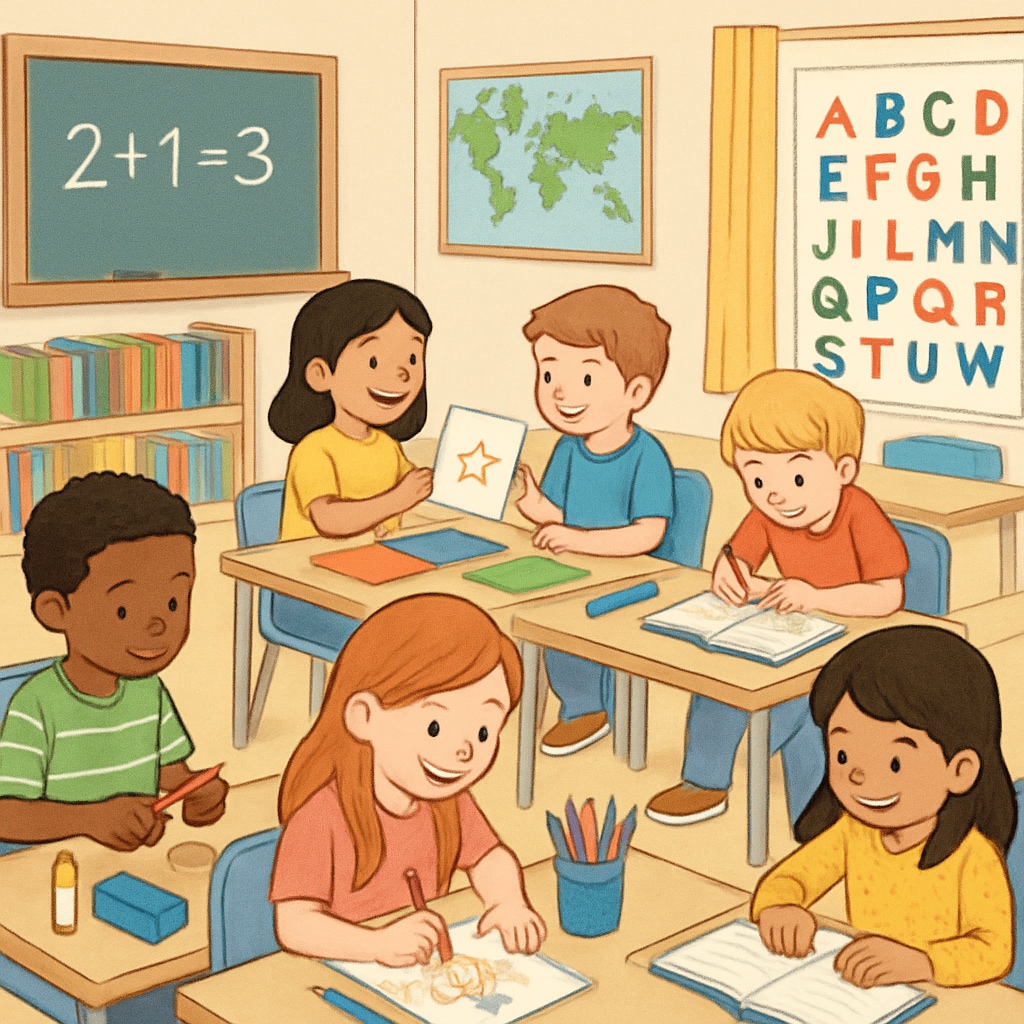In recent years, the pressure of college applications has begun to trickle down to younger students, with even first graders now feeling the weight of academic expectations. This troubling trend is creating numerous difficulties for children, impacting their mental health, learning experiences, and overall development. But how did we reach this point, and what can be done to protect the well-being of our youngest learners?
The Growing Reach of College Application Pressure
The college admissions process has long been a source of stress for high school students. However, in today’s competitive educational landscape, this pressure has started to infiltrate the early years of schooling. Parents and educators, driven by the fear of falling behind, are enrolling children in advanced programs, extracurricular activities, and even test preparation courses as early as first grade. These efforts, while well-intentioned, often place undue stress on children who are still developing foundational skills such as reading, writing, and emotional regulation.
For example, a 2020 study conducted by the American School Counselor Association found that nearly 30% of parents reported feeling pressure to prepare their children for college by the end of elementary school. This “college readiness” mindset often leads to an overwhelming schedule for young children, leaving little room for play, creativity, and exploration—key components of healthy childhood development.

How Stress Affects First Graders
When children are exposed to high levels of academic pressure at an early age, their mental health and emotional well-being can suffer. First graders, in particular, are at a critical stage of development, where they are learning to navigate social relationships, manage emotions, and establish a love for learning. Excessive stress can disrupt these processes, leading to anxiety, burnout, and a negative attitude toward education.
Moreover, the focus on academic achievement can negatively impact a child’s intrinsic motivation. Instead of learning for the joy of discovery, children may begin to associate education with external rewards and punishments, fostering a fear of failure. This shift in mindset can have long-term consequences, including reduced resilience and lower self-esteem.
According to the Child Mind Institute, children who experience chronic stress are more likely to develop mental health disorders such as anxiety and depression later in life. Given this, it is crucial to address the root causes of early academic pressure and create an environment that supports holistic development.

Building a Healthier Educational Ecosystem
To reduce the pressure of college applications on young students, a collective effort is needed from parents, educators, and society as a whole. Here are some strategies to consider:
- Focus on Development, Not Competition: Shift the emphasis from competitive achievement to personal growth. Encourage children to explore their interests and develop skills at their own pace.
- Reintroduce Play and Creativity: Ensure that young students have ample opportunities for unstructured play, which is vital for cognitive and emotional development.
- Provide Emotional Support: Teach children how to manage stress and emotions through mindfulness practices, counseling, and open communication.
- Educate Parents: Offer workshops and resources to help parents understand the importance of a balanced approach to education.
- Advocate for Policy Change: Work with school systems to prioritize student well-being over academic metrics, ensuring that curricula are age-appropriate and developmentally supportive.
By implementing these measures, we can create an educational system that nurtures young minds without overwhelming them. After all, the ultimate goal of education should be to foster a lifelong love of learning, not to burden children with unnecessary stress.
Conclusion: A Call to Action
The phenomenon of college applications impacting first graders highlights the urgent need for reform in the education system. The difficulties faced by young students today are not inevitable; they are the result of societal pressures and misplaced priorities. By working together, parents, educators, and policymakers can ensure that the next generation of students thrives in an environment that values their mental health, creativity, and individuality.
It is time to rethink our approach to education and prioritize what truly matters: the well-being and holistic development of our children.
Readability guidance: Short paragraphs, lists, and transitions improve clarity. Avoid excessive passive voice and long sentences to maintain reader engagement.


